Publications
Articles, publications, books, tools and multimedia features from the U.S. Institute of Peace provide the latest news, analysis, research findings, practitioner guides and reports, all related to the conflict zones and issues that are at the center of the Institute’s work to prevent and reduce violent conflict.
Commission of Inquiry: Côte d’Ivoire
Commission of Inquiry: Mediation Committee for National Reconciliation Duration: 2000 – 2001 Charter: Presidential Decree Commissioners: 28 Report: No report
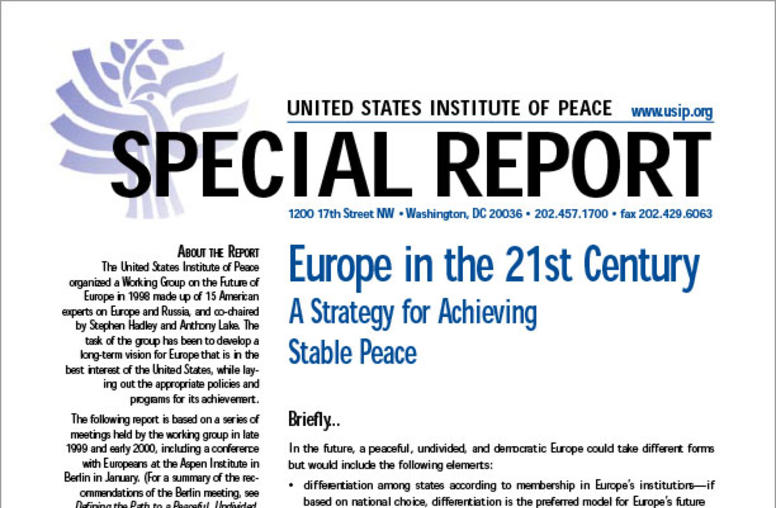
Europe in the 21st Century: A Strategy for Achieving Stable Peace
Summary In the future, a peaceful, undivided, and democratic Europe could take different forms but would include the following elements: differentiation among states according to membership in Europe's institutions--if based on national choice, differentiation is the preferred model for Europe's future a stable peace among European states the integration of Russia into Europe a more equal relationship between the European Union and the United States in European affairs and gl...
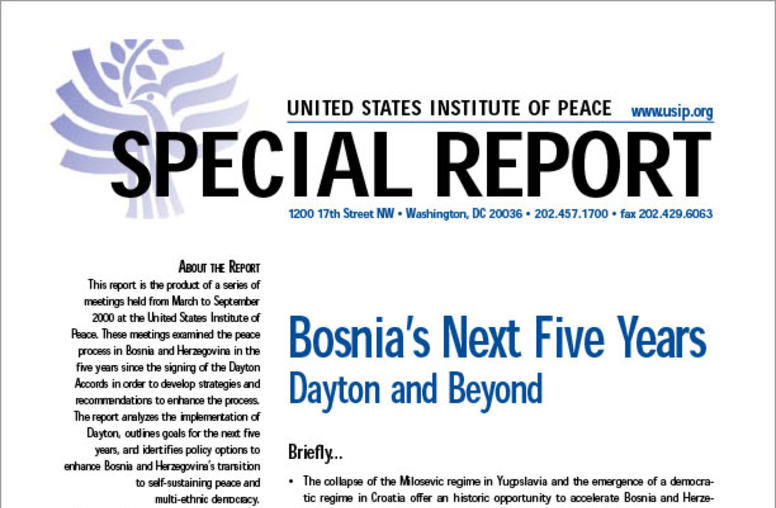
Bosnia's Next Five Years: Dayton and Beyond
The Dayton Upgrade Project at the United States Institute of Peace held a series of meetings to examine the peace process in Bosnia in the five years since the signing of the Dayton Accords. Subjects addressed included post-war security structures in Bosnia, institution building, economic restructuring, ethnicity, and nationalism.
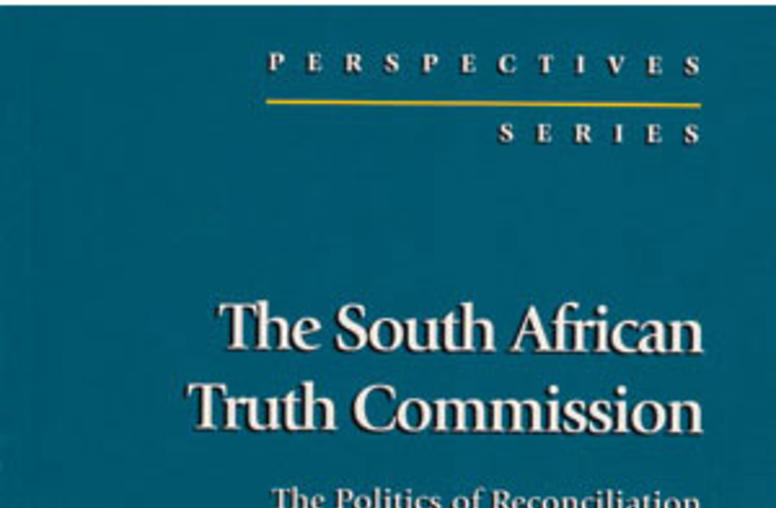
The South African Truth Commission
In the latter half of the 1990s, South Africa’s Truth and Reconciliation Commission (TRC) offered the country the chance to build a better future by facing up to its past. Amid saturation media coverage, victims of human rights abuses told their harrowing stories and perpetrators confessed to horrendous acts.
Truth Commission: South Korea 2000
Truth Commission: Presidential Truth Commission on Suspicious Deaths Duration: 2000 – 2004 Charter: The Special Act to Find the Truth on Suspicious Deaths Commissioners: 9 for each of two terms Report: Public report
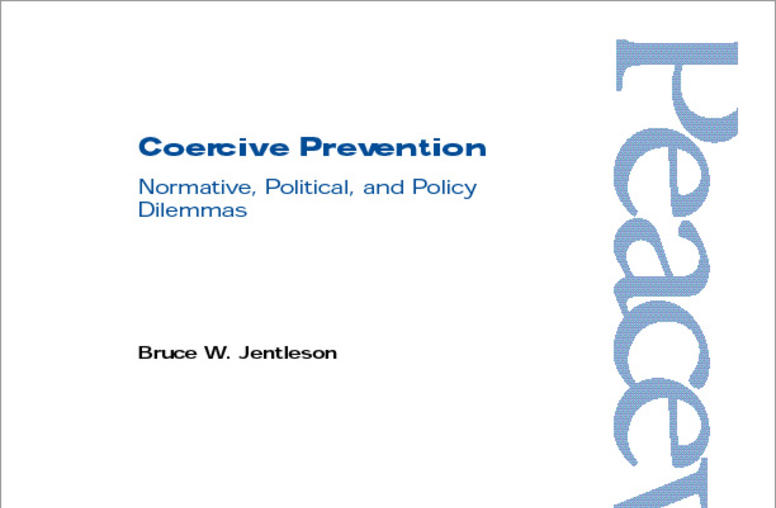
Coercive Prevention: Normative, Political, and Policy Dilemmas
For all that has been proclaimed about the importance of preventive diplomacy, the reality of international action falls far short. This report focuses on one particular aspect of this agenda, namely, the need to take a harder look at "coercive prevention," and particularly at the threat or use of military force as frequently necessary parts of overall preventive strategies. This is a very different approach from versions of preventive diplomacy that make its noncoercive nature a defining pa...
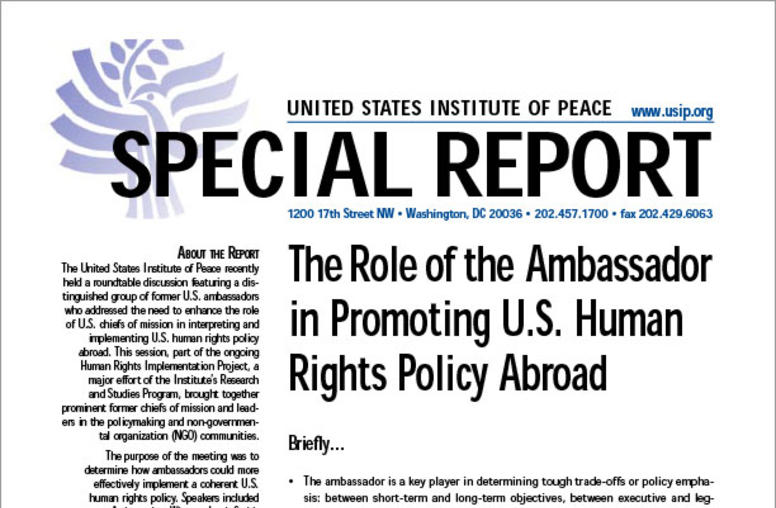
The Role of the Ambassador in Promoting U.S. Human Rights Policy Abroad
Summary The ambassador is a key player in determining tough trade-offs or policy emphasis: between short-term and long-term objectives, between executive and legislative priorities, between strategic interests and specific human rights concerns, between public and private diplomacy, between coercive and cooperative approaches, and between unilateral and multilateral approaches to specific problems.
Truth Commission: Uruguay
Truth Commission: Commission for Peace Duration: 2000 – 2002 Charter: Resolución de la Presidencia de la República No. 858/200 Commissioners: 6 Report: Public report
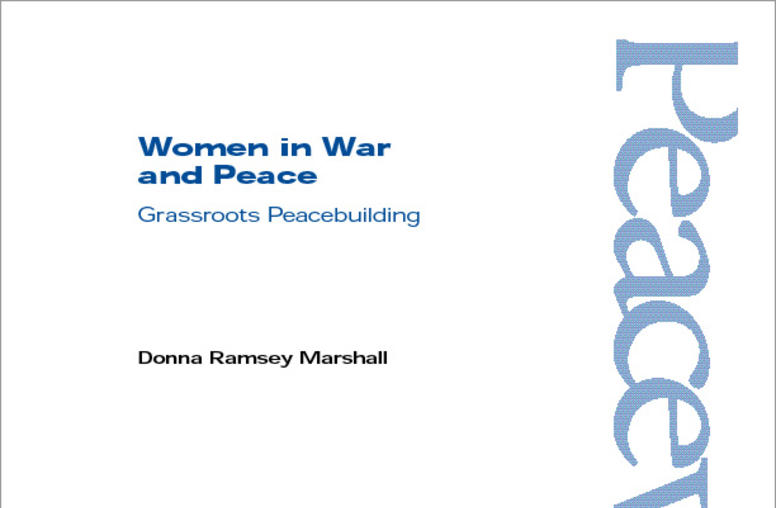
Women in War and Peace: Grassroots Peacebuilding
While much of the work of conflict resolution focuses on the government or public level, the resolution of contemporary conflict is very much a holistic process that is simultaneously conducted at the private, grassroots level. Many of the efforts under way to sustain peace in countries and regions beset by or emerging from violent conflict are undertaken by grassroots organizations formed by those whose lives are most directly and significantly affected by the conflict. A substantial proport...
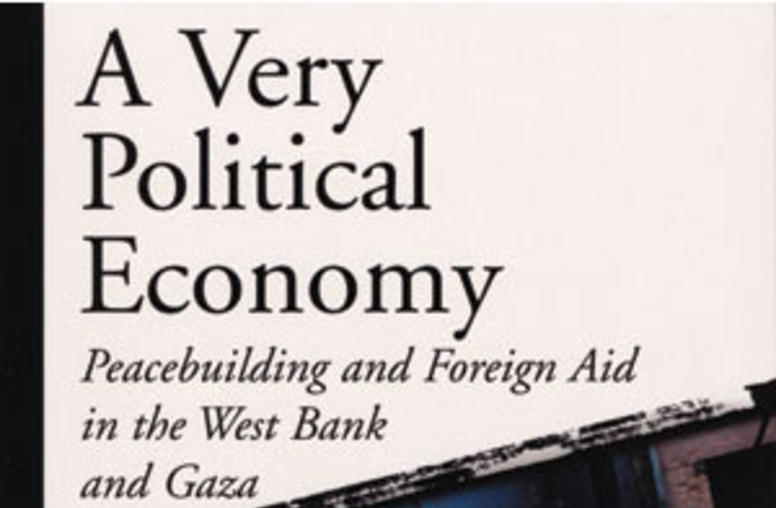
A Very Political Economy
A Very Political Economy spares no political sensitivities in its dissection of the aid process, but also argues persuasively that without international assistance there would have been no Palestinian Authority left to negotiate with, and no peace process to revive.